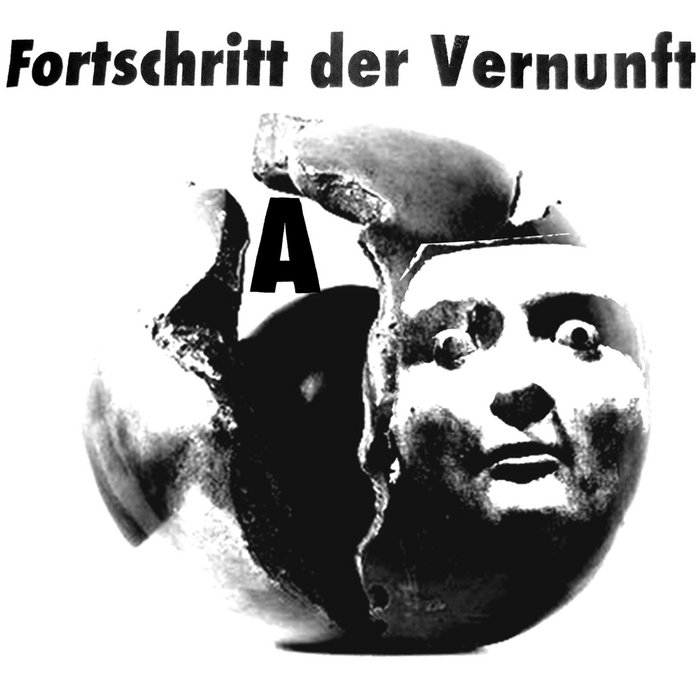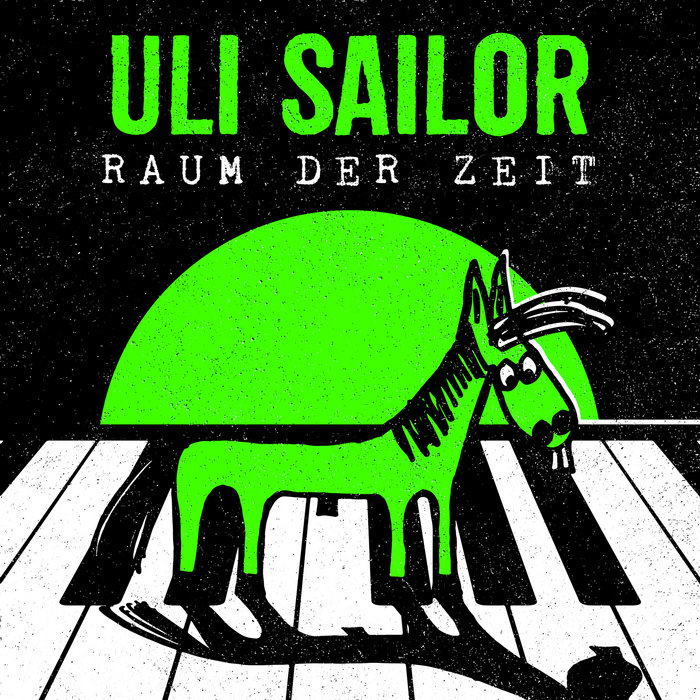
Fortschritt der Vernunft – KRANK
this blog is GROOVY – check out great Soul, Funk, Jazz, Hip Hop, Bass, Breaks , Reggae, House n many more TUNES
Alright, let’s dive into the vibrant world of Deutschpunk, a genre that’s as wild and rebellious as it sounds! Picture this: it’s the late 1970s in Germany, post-war tensions are bubbling beneath the surface, and young folks are eager to shake off traditional norms just like a stubborn stain on their favorite leather jackets. Enter Deutschpunk!
Born out of necessity and youth culture, Deutschpunk emerged from the broader punk rock movement that was igniting across Europe and North America. It all kicked off around 1977 in West Germany when kids started picking up guitars and chanting their frustrations about politics, society, and—let’s be honest—their parents. Bands like Die Toten Hosen (The Dead Pants) and Slime were among those leading the charge.
With a raw sound characterized by fast tempos, aggressive riffs, and unapologetic lyrics delivered with pure angst—Deutschpunk quickly became an outlet for rebellion against authority figures. Their catchy melodies often wrapped themselves around messages that screamed social critique while shaking hips at weekend gigs.
But what’s music without a little humor? Many Deutschpunk bands had quirky personalities that could make you chuckle even amidst all that rage! For instance:
Die Ärzte (The Doctors), notorious for their cheeky lyrics and comedic stage presence. Did you know they once played at a packed Berlin venue dressed as giant meat patties? Yup! They thrived on absurdity which totally blended with their punk ethos.
And then there’s WIZO, who took sarcasm to another level with songs like “Kopf oder Zahl” (“Heads or Tails”) where they hilariously debated serious topics… heads or tails style!
These musicians didn’t just want to rattle cages; they also wanted to make people laugh while doing it—a classic combo if you ask me.
Fast forward through the ‘80s: Punk rock spread across Germany faster than rumors at family gatherings! Venues sprang up everywhere—from dingy basements to community centers—each hosting loud concerts filled with passionate fans. Labeling themselves “the voice of discontent,” bands cranked out albums reflecting real-life struggles in German society.
As we transitioned into the ‘90s, Deutschpunk saw infusions from other genres like ska and reggae thanks to its ever-evolving nature. Bands started experimenting more—which is funny considering many members still dressed exactly how they did back when punk first hit town!
Let’s not forget about one wild fact: during these years, it became almost customary for bands’ cassette tapes released through DIY labels to have hand-drawn covers featuring everything from dinosaurs wearing sunglasses to goofy caricatures of members’ pets!
Entering the 2000s wasn’t any less exciting; new faces appeared while older ones kept slinging tunes full of snarky commentary. By now groups such as Terrorgruppe gained notoriety…and even found time between coffee breaks discussing perfectly crafted sarcastic lines detailing daily life observations.
Despite its sometimes-rigid reputation labeled exclusively under rebelliousness forever rooted in angst—the modern scene embraces diversity within itself too:
Take Panik, who broke barriers mixing electronics alongside classic punk vibes—and funnily enough encouraged mosh pits next door during karaoke nights!
Or how about ZSK, writing political songs but incorporating dance beats so folks can head-bang AND hit those funky moves?
Now that’s some versatility you’d expect from an artist whose mission is having fun while spreading awareness simultaneously!
You can’t talk about Deutschepunks without indulging in some odd trivia:
Band names became practically synonymous with dark humor; ever heard of “Hasselhoff”? Yes—it exists because evidently every genre needs David Hasselhoff references somewhere along its timeline!
During live shows audiences developed scant traditions—for example tossing random fruit onto stage only after mistaking one member’s bald head gleaming lights above him for… well—you guessed it —a giant grapefruit?!
An iconic band made waves after accidentally misspelling its own name; resulting in countless merch shirts reading “Useless Punks”. Fans loved it though—they wore them proudly claiming irony wasn’t lost here either!
As we wrap this joyous ride exploring Deutschpunk history sprinkled generously with laughter-worthy moments—we recognize something beyond mere sounds lies deeply entrenched within these chaotic rhythms binding us together—the spirit rebellion echoed deep inside hearts yearning change yet honoring roots uniquely crafted throughout generations passed down endlessly via prideful quirks laden beautifully alongside genuine passion expressed over beats pounding louder than thunder rolling outside your window during storms long forgotten since last summer ended abruptly leaving traces memories etched eternally upon lives touched forevermore…
So crank up those speakers loud enough until neighbors complain—and carry forth our shared love funk-filled energy toppling boundaries never shying away shining bright together embracing everything glorious swirling & whirling art created walking life’s messy journey knowing distinctly each note carries echoing truths transcending far beyond rhythm itself entirely inviting everyone joining hands create true harmony existing wide-open doors rocking fiercely onward into numinous realms ahead… That dear friends sums our groovy adventure through stalwart songwriters finding freedom dancing wildly celebrating unity seeking joy fostered by spirited laughter ringing echoes still alive resonating sweetly—to chaos unbound – keep living & strumming strong! 🎸

Fortschritt der Vernunft – KRANK

Raum der Zeit (WIZO Cover) – Uli Sailor